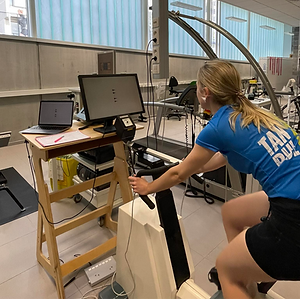NOTELAB
COGNITIVE PSYCHOLOGY AND DECISION MAKING IN SPORTS

Cognitive Sport Psychology: unlocking new potential
By focusing on recent advances in cognitive (neuro) psychology, there is vast potential to enrich sport psychology. For example, error monitoring is a central topic in contemporary cognitive psychology. Decades of research have explored how people adapt behaviour after making errors. A well-established finding is that errors tend to prompt a more cautious approach in subsequent actions. Translating these insights into sports contexts can enhance crucial in-game elements, such as shot selection and risk assessment. Compared to other established areas like motivational or educational sport psychology, cognitive sport psychology remains relatively undeveloped. This emerging field invites exploration into additional cognitive mechanisms that influence athletic performance. Recent theoretical models and frameworks from cognitive psychology can deepen our understanding of decision-making processes in sports, paving the way for future innovations.
We're excited to introduce three new members to the team!
RESEARCH & DISCOVERIES



INCREASED CAUTION AFTER MISSES
After a missed shot professional basketball players are more careful.
DECISION MAKING DURING PHYSICAL EXERCISE
Exploring the inverted U shape: low-intensity physical exercise increases decision making while high intensity training interferes
MODERATE EXERCISE IMPROVES INTEROCEPTION
We demonstrated that people are better at detecting their heart beat when doing moderate physical exercise

DECISION MAKING IN SPORTS
TESTING AND TRAINING ELITE SPORTERS
On the basis of formal decision making models we test athletes' cognitive performance (reaction time, attention, impulsivity,...) and create a unique cognitive profile. We can also train specific decision-making parameters with the goal to improve decision making in sports (under pressure).



